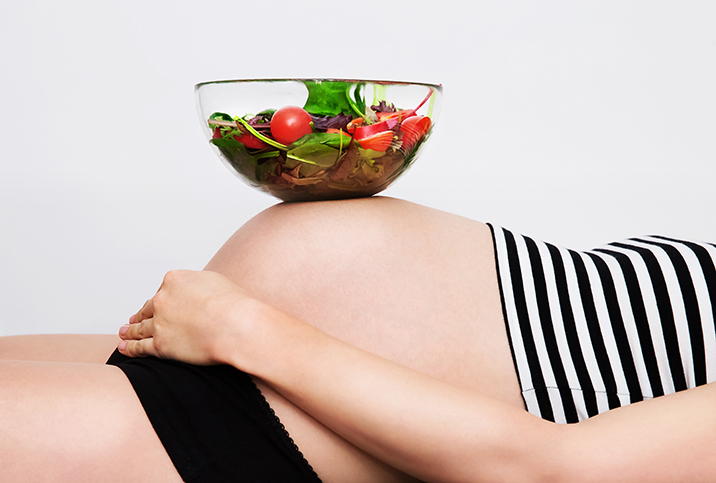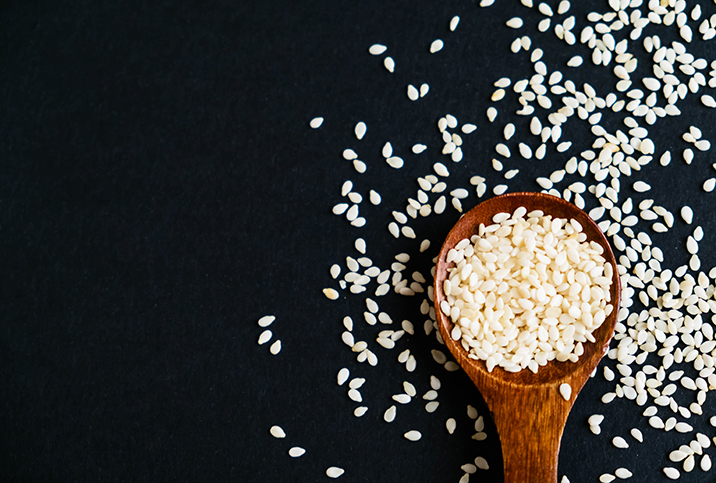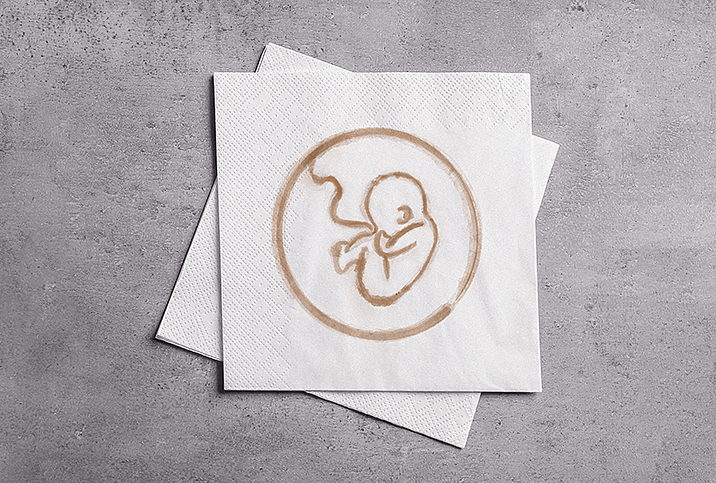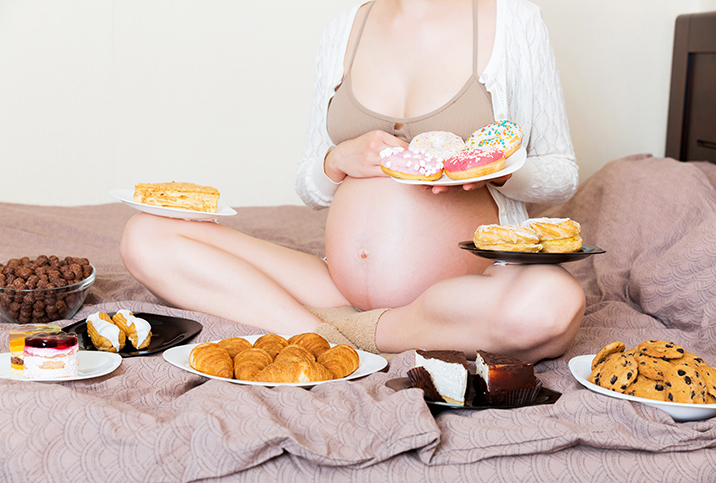Food Safety Tips to Keep in Mind During Pregnancy

Eating when you're pregnant can get a little complicated. That's because pathogens that produce mild symptoms outside of pregnancy can have severe consequences for a developing fetus.
Some do's and don'ts
To avoid trouble, pregnant women should avoid soft cheeses and unpasteurized dairy, cider or juice. Cook eggs until they're no longer runny. Watch out for hidden sources of undercooked eggs, including Caesar salad dressings, eggnog or hollandaise sauce. If you eat hot dogs or lunch meats, be sure to heat them until they're steaming hot.
Use caution with coffee and herbal teas. Try to limit yourself to two cups of caffeinated coffee per day. And as for drinking anything harder, remember, there is no safe limit for alcohol intake while pregnant.
Always wash your hands before preparing food. Rinse fresh fruits and vegetables under running water to eliminate dirt and bacteria before eating or cutting into them. Otherwise a highly nutritious food, raw sprouts are best avoided when you're expecting because they can trap bacteria such as salmonella and E. coli. However, they're still fine to eat as long as you cook them thoroughly.
Be selective about the type of fish you eat, but don't avoid it altogether. Seafood contains beneficial omega-3 fatty acids, which support your baby's brain development. However, some fish are high in mercury, which is a known neurotoxin. Avoid large fish like swordfish, shark and tilefish. Opt instead for two to three weekly servings of sardines, anchovies, salmon, catfish, shrimp or tilapia. The most important step: Always thoroughly cook seafood before you eat it. Adequately cooked fish flakes with a fork or has reached an internal temperature of 145 degrees Fahrenheit.
Keep hot foods hot and cold foods cold
The safe temperature for food is above 140 F or below 40 F. The range between 40 F and 140 F degrees is known as the "danger zone" because it's the temperature at which bacteria thrive. Once food has been in the danger zone for two hours, it is no longer safe to eat.
If you go out to a restaurant, expect cooked dishes to be served piping hot. Be wary of meals that arrive at room temperature. When cooking at home, a food thermometer is an essential tool. Cook poultry and leftovers to 165 F, ground meats and egg dishes to 160 F, and fresh meats and seafood to 145 F. Print out this handy chart from the Food and Drug Administration (FDA) to keep in your kitchen as a reference. Additionally, clean your food thermometer well between uses.
When in doubt, throw it out
Can't remember when you cooked that casserole or how long that chicken breast has been out of the freezer? Don't take a chance. Although it can feel wasteful to throw away food, nothing is worth risking the safety of your baby.
To prevent food waste from the start, get in the habit of labeling all food containers. If you do meal prep or buy food in bulk, write a date on each item so you can keep track of how long it's been sitting in the fridge. Keep sticky notes and a permanent marker handy for labeling.
Unfortunately, sometimes food goes bad before its scheduled expiration date. If you see signs of mold or notice funky odors, colors or textures, it's better to be safe and toss it. Keep your receipts from the grocery store so you can get a refund on items that didn't live up to their promised shelf life. Pregnancy isn't the time to take a chance on food safety.

















